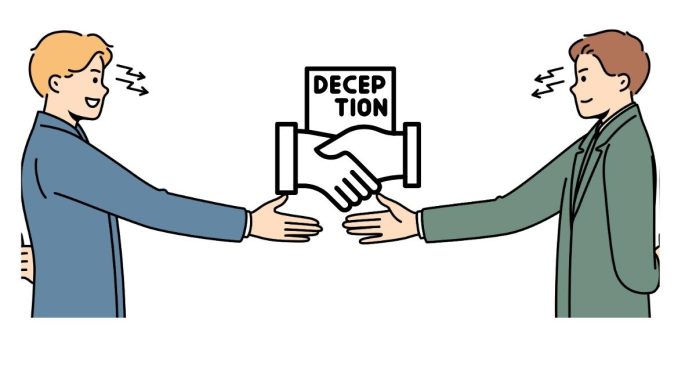The terms deception and deceiving are often used interchangeably, but they have nuanced differences in meaning and usage. Both words are rooted in the act of misleading someone, but they serve different grammatical and contextual purposes. Understanding these distinctions can clarify how they are used in language and in various situations.
Definition of Deception
Deception is a noun that refers to the act or practice of deliberately causing someone to believe something that is not true. It can also denote the state of being deceived. Deception is often associated with the intent to mislead, whether for personal gain, protection, or manipulation.
For example:
- The magician’s tricks rely on deception to create the illusion of magic.
- He uncovered the deception that had been hiding the truth for years.
Deception typically emphasizes the act or process of misleading, rather than the person carrying it out. It can encompass a wide range of behaviors, from lying and omitting details to using disguise or trickery.
Definition of Deceiving
Deceiving is the present participle or gerund form of the verb to deceive, which means to deliberately mislead or trick someone. As a verb, “deceiving” refers to the action being performed in the moment or as an ongoing activity. It highlights the act of misleading rather than the outcome or state.
For example:
- She is deceiving her colleagues by pretending to support their ideas.
- Deceiving others can erode trust in relationships.
“Deceiving” emphasizes the dynamic action of misleading someone, making it more active compared to the static nature of “deception.”
Key Differences Between Deception and Deceiving
- Grammatical Category:
- Deception is a noun, referring to the act, practice, or state of misleading someone.
- Deceiving is a verb (present participle), focusing on the ongoing or continuous act of misleading.
- Focus:
- Deception focuses on the concept or result of misleading.
- Deceiving focuses on the action or process of misleading someone.
- Usage:
- Deception is often used in abstract or theoretical contexts, such as discussing the ethics of misleading behavior or the psychological effects of being deceived.
- Deceiving is used when describing the action of misleading in a specific instance or situation.
Examples in Context
Deception:
- The success of the spy’s mission depended on deception.
- The politician’s deception eventually led to his downfall.
Deceiving:
- By forging the documents, he was actively deceiving his superiors.
- She realized too late that he had been deceiving her all along.
Overlap and Interchangeability
In some contexts, “deception” and “deceiving” may appear interchangeable, but subtle differences remain. For instance:
- He is skilled at deception. (Emphasizes his ability to mislead.)
- He is skilled at deceiving others. (Emphasizes his actions in misleading people.)
The choice of word often depends on whether the focus is on the act (deceiving) or the concept/result (deception).
While deception and deceiving are closely related, they differ in grammatical role, focus, and usage. “Deception” refers to the overall act or state of misleading someone, while “deceiving” highlights the active process of doing so. Recognizing these differences enhances clarity and precision in communication, especially when discussing ethical or psychological aspects of misleading behavior.



